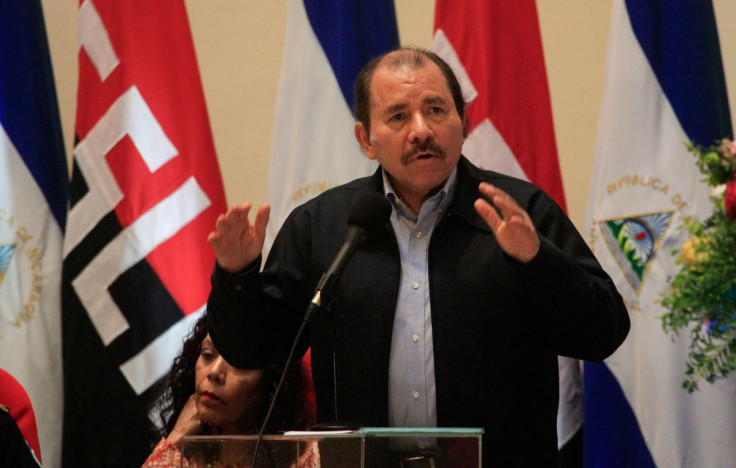
Nicaraguan police established a medical unit at the residence of retired general Humberto Ortega, brother of President Daniel Ortega and a known government critic, a move that exiled opposition media interpreted as house arrest.
The move took place last week after the 77-year-old former army chief gave an interview with Argentine outlet Infobae and said his brother had no political heirs within his family and the Sandinista movement, and predicted that, if he were to die, his close circle would not be able to maintain power in Nicaragua.
"A specialized medical unit has been created to deal with the ailments that have afflicted and continue to afflict General Ortega. The team of specialists will maintain constant communication, coordination and visits," the police said in a statement.
Exiled media outlet Artículo 66 condemned the move in an article titled: "The regime of Daniel Ortega and Rosario Murillo disguises 'house arrest' as 'permanent medical care.'"
Other opposition media outlets reported similar accounts of the events. Newspaper La Prensa revealed that police confiscated Ortega's cell phones and computers on Sunday, the same day the interview was published.
CONFIRMADO. Policía 👮♀️ y el Ministerio de Salud están “cuidando y protegiendo” a Humberto Ortega. La verdad es que es un canibalismo político y nadie se salva. NADIE ni la misma familia. pic.twitter.com/7s5Il6HPt5
— Arturo McFields Yescas (@ArturoMcfields) May 21, 2024
The former military chief also told Infobae that he had been summoned for an "interview" on Monday with President Ortega's security adviser, Horacio Rocha. According to Deutsche Welle (DW), details of the meeting, if it took place, were not disclosed.
General Humberto Ortega and his brother, current President Daniel Ortega, have been politically estranged for over 30 years.
Both were part of the Sandinista guerrilla movement that fought against the dictatorship of Anastasio Somoza, who had been in power in the Central American country for four decades.
They later led the regime that governed Nicaragua in the 1980s, with Humberto serving as the army chief and Daniel as the president. In 1990, Daniel would lose the elections against opposition candidate Violeta Barrios de Chamorro, but Humberto continued to lead the armed forces until 1997.
Daniel Ortega regained power in 2007 and has since been re-elected in four consecutive elections that have been criticized by the international community.
Nicaragua has bene immersed in a political crisis over the past years, exacerbated by events following the 2021 elections. Ortega's main opponents have since been imprisoned and subsequently expelled from the country.
The statements that triggered the movements of the past week came in response to a question from journalist Fabián Medina Sánchez about what Humberto believed would happen in the event of President Daniel Ortega's eventual death.
"In the event of Daniel Ortega's sudden absence, there would first be enormous confusion and, in my view, an impossibility for the civil part of the government and the party to take solid power. The Sandinista institutions in the government or the party would not, in my opinion, have the capacity to fill that void. The only thing that can resolve that void, and prevent anarchy and chaos in the country, is the Army. First and foremost, the Army. Coordinated with the National Police. And seek a short-term solution, perhaps a year or less, to convene an electoral process, either the one scheduled for 2026... That would be it. Generating the conditions for that process," Humberto responded.
"As for the civil power, of the government and the party, I do not see the capacity to fill that void, neither immediately nor in the medium term, but simply to function within the framework of a transition led by the government with the security forces, the Police, and a process of negotiations and alliances, allowing room for civil society to agree on an outcome in the elections for 2026. That would be looked upon favorably by the United States and the countries of the Alba," he added.
© 2025 Latin Times. All rights reserved. Do not reproduce without permission.





